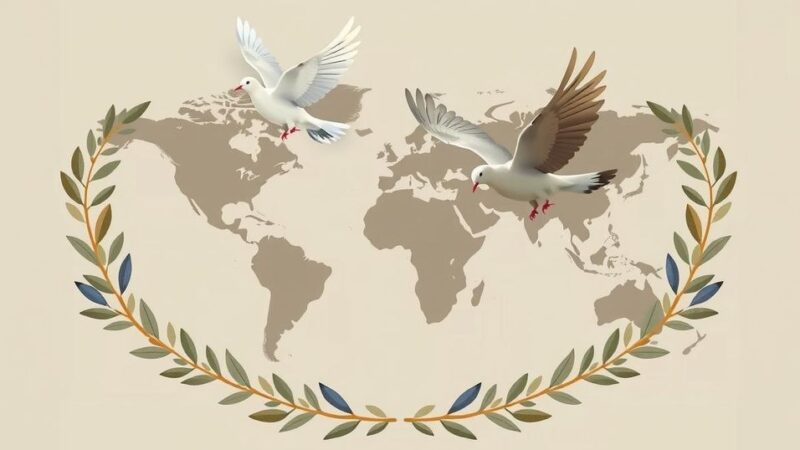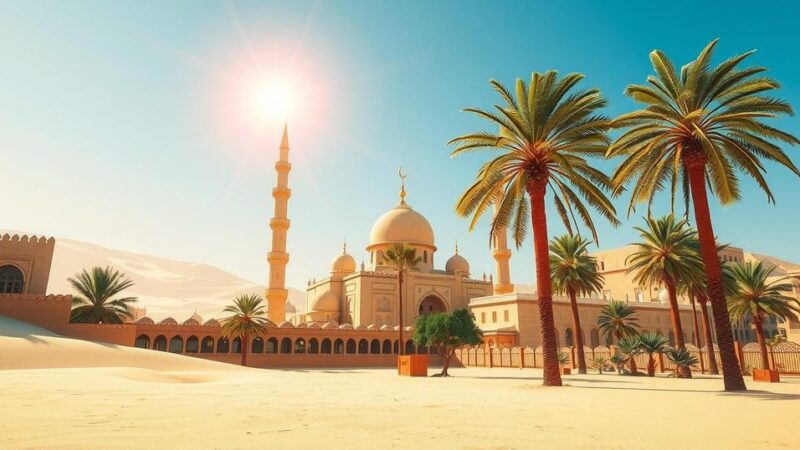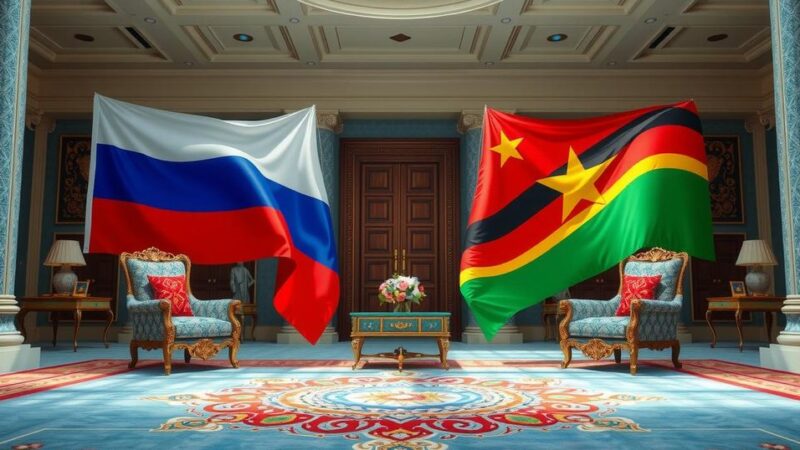U.S. and Iranian negotiators concluded a three-hour meeting in Oman, agreeing to continue discussions on Iran’s nuclear program. The talks fostered optimism among U.S. officials, while Iran characterized them as challenging but productive. President Trump’s upcoming Gulf visit adds urgency, with the focus on reaching a diplomatic resolution amid complex issues surrounding nuclear enrichment.
MUSCAT, Oman — A recent round of Iran nuclear talks held in Oman has left U.S. officials feeling cautiously optimistic. After three hours of discussions, both sides agreed to reconvene to hash out the technical specifics of a potential agreement. A senior official from the Trump administration expressed a hopeful outlook, stating, “We are encouraged by today’s outcome and look forward to our next meeting, which will happen in the near future,” and confirming that they had decided to continue working through the technical aspects.
Iran’s response, however, was somewhat tempered. Esmaeil Baqaei, a spokesman for Iran’s foreign ministry, characterized the talks as “difficult but useful,” while also mentioning that Oman would coordinate the subsequent round of discussions. Sources in Oman suggest the talks are progressing positively. President Trump is reportedly seeking a swift victory in foreign policy, especially as deals regarding Gaza and Ukraine remain elusive. Meanwhile, Iran is eager to lift sanctions that have significantly hampered its economy.
The discussions, which were led by U.S. negotiator Steve Witkoff and Iranian Foreign Minister Abbas Araghchi, benefited from the diplomacy of Omani Foreign Minister Sayyid Badr Al-Busaidi, who facilitated communication between the two nations. Consistent with prior meetings, Witkoff and Araghchi also engaged in direct conversation. With Trump set to visit Saudi Arabia, Qatar, and the United Arab Emirates, he has expressed a preference for a diplomatic resolution instead of military confrontation related to Iran’s accelerating nuclear activities.
However, uncertainty lingers regarding the U.S. position on Iran’s nuclear enrichment. Trump indicated that he has yet to finalize whether Iran would be allowed to keep a limited enrichment program. Conversely, Witkoff labeled Iran’s enrichment activities a “red line” for the U.S., asserting, “No enrichment…that means dismantlement, it means no weaponization.” Last month, Secretary of State Marco Rubio stated that Iran might maintain a civilian nuclear program, but would need to source enriched material externally.
It remains ambiguous whether this uncertainty on enrichment is strategic or if genuine indecision exists within the U.S. administration, while Iranian officials assert that their right to domestic enrichment is non-negotiable. Notably, Trump previously withdrew from the 2015 agreement that had imposed limits on Iran’s nuclear activities in exchange for sanctions relief. Since that withdrawal, Iran has ramped up its uranium enrichment, which is now nearing levels considered weapons-grade.
The discussions in Muscat are focused specifically on Iran’s nuclear pursuits, with other issues like missile programs and proxy engagements to be addressed later, as per Witkoff’s indications. Some observers warn that any attempts by the Trump administration to broaden the agenda beyond nuclear matters could jeopardize the negotiations entirely.
As President Trump prepares to arrive in Riyadh on Tuesday, the topic of Iran’s nuclear program is expected to dominate the conversation. Gulf states, once wary of U.S.-led talks, appear more receptive this time around, likely due to a regional shift toward economic collaboration rather than confrontation. Iran and Saudi Arabia have resumed relations, highlighting this new approach. Just before the talks, Araghchi met with officials in Jeddah and Doha, indicating a proactive diplomatic effort from Iran.
In conclusion, the recent nuclear talks between the U.S. and Iran in Oman have sparked cautious optimism from American officials, who are now preparing for further discussions. While the atmosphere appears promising, uncertainties around the U.S. stance on nuclear enrichment remain. As Trump embarks on diplomatic missions in the Gulf, the evolving dynamics of these negotiations could have significant implications for regional stability and relations between the powers involved.
Original Source: www.al-monitor.com






